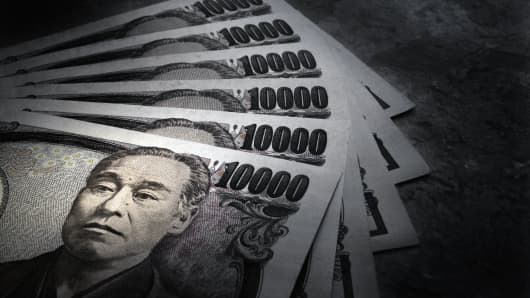The dollar-yen has surged past 100 for the third time this year amid expectations that a win by Prime Minister Shinzo Abe's ruling Liberal Democrat Party at Sunday's upper house elections would bolster the government's power to push its radical agenda forward.
And analysts say the latest move past the key psychological level is a sign that prolonged yen weakness is here to stay.
The currency pair breached the 100 level on Thursday to trade as high as 100.86 and hovered around the 100-mark for most of Asia's trading session on Friday. Dollar-yen crossed the 100 target the first time since 2008 back in May, and tested the level again in early July.
"Dynamics [driving the yen] are a sign that markets are increasingly confident of a Liberal Democrat Party victory at the upper house elections," said Vishnu Varathan, market economist at Mizuho Corporate bank.
(Read More: What Sunday's Japan election means for Abenomics)
"The significance of a LDP majority in the upper house is that 'Abenomics' will have fewer impediments, which in turn should boost equities and soften the yen," he added, referring to the radical plan unveiled by Abe to kickstart the economy.





